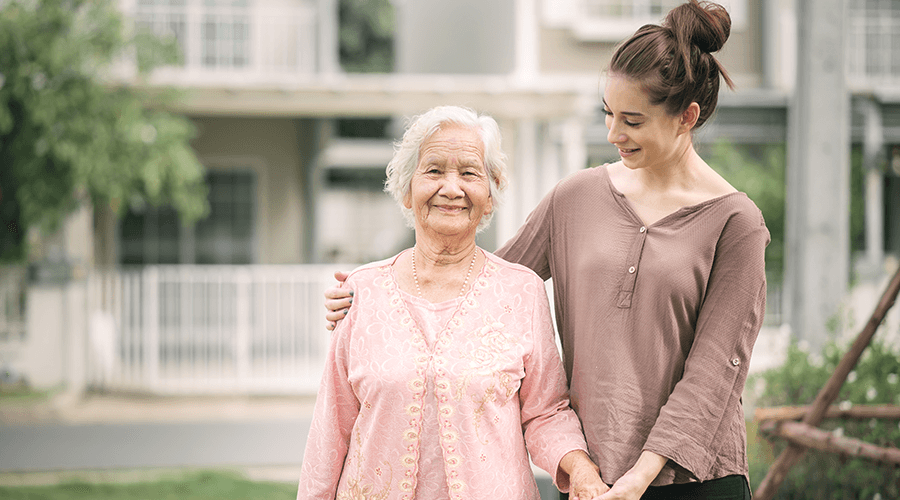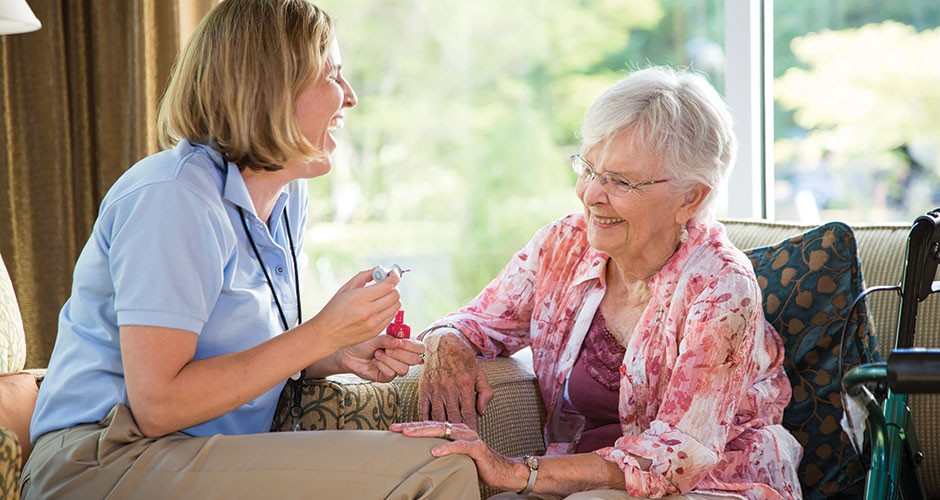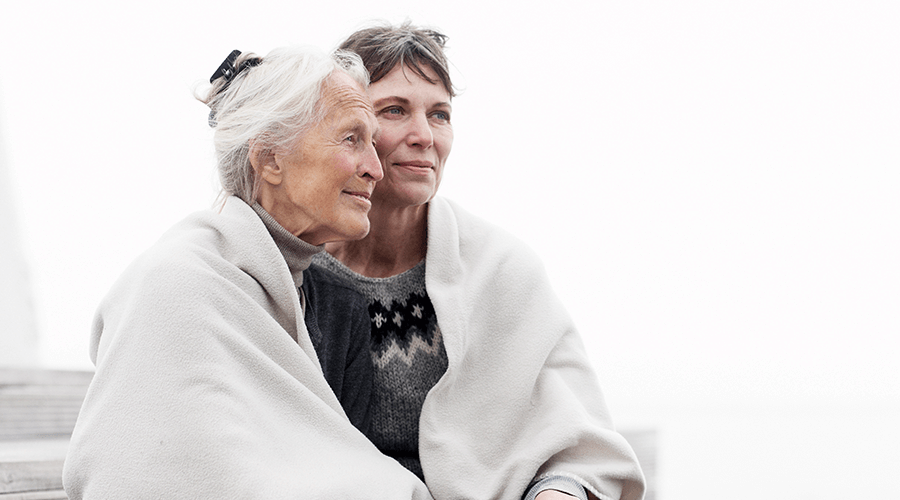Being a caregiver can mean anything from occasionally helping a loved one with small tasks to providing for all of their daily needs.
Whatever type of caregiver you are, it’s important to remember that you must take care of yourself to take care of someone else. And in doing so, you may need to ask for help. This is normal, and it’s often the best thing you can do for yourself and your loved one.
The Good Samaritan Society understands the many unique challenges that come with caregiving and offers caregiver support services to help relieve some of the burden. Below, we’ve provided some common scenarios faced by caregivers, as well as links to the services we provide if you find yourself in any of these situations.
I’m new to caregiving, and my loved one is new to receiving care. They’d like to stay at home, but I can’t always be there.
The early stages of caregiving can come with a lot of uncertainty. In this case, home care—our non-medical, in-home assistance program—could be a good incremental step for you and your loved one. A Good Samaritan Society caregiver can help with tasks like meal preparation, light housekeeping and errands while also providing companionship when you’re away from home. If your loved one needs medical assistance at home, consider home health services.
I’m an experienced caregiver, but my loved one’s needs are starting to pile up.
Even experienced caregivers can feel overwhelmed. If you prefer to continue providing care to your loved one at home but can no longer do it alone, consider home care or home health services first.
If your loved one’s needs—whether medical, social or otherwise—exceed the available resources in their home or yours, adult day services and respite care are great short-term solutions.
But, if you think you need a more permanent solution outside of the home, you should consider assisted living or long-term care for your loved one. If they would be safe doing some things independently with access to help, assisted living may be the right fit. If their well-being depends on around-the-clock supervision, you will want to explore moving them into a long-term care community.
I want to continue living at home with my spouse, but their medical needs go beyond my expertise.
It can be disheartening and even frustrating to feel like you can’t fully provide for your loved one. If you prefer to continue your caregiving at home, home health services can deliver the medical expertise that many unpaid caregivers lack. The compassionate, capable caregivers of The Good Samaritan Society are available up to seven days per week to help with medication management, wound care and illness or injury recovery, including physical, occupational and even speech therapy.
I think my loved one may need more specialized, attentive care, but I’m hesitant to start the conversation about a move.
If you can no longer meet your loved one’s mounting needs at home, it’s time to explore assisted living or long-term care options. This may require a difficult conversation. Lead with empathy for their situation and discuss how the transition could make their lives easier and more enjoyable. For more guidance, consult our five tips for talking to your parents about senior living.
I provide care for a loved one who does not live with or near me, and I worry for their health.
Caregiving from a distance comes with its own challenges. In particular, the distance between you and your loved one can make it difficult to know for sure when they need more help. This is especially true if your loved one prefers their privacy or fears being a burden to others.
This uncertainty can be troubling for distant caregivers. To get the best sense of your loved one’s situation, you should make a visit if possible. While you’re there, see if they’re keeping up with the demands of daily living. Are they taking care of themselves and their space? Could anything in the home endanger them?
If you can’t visit, check in regularly over the phone or via video chat. If you know anyone who sees your loved one often, ask them if they’ve noticed any changes.
If these efforts uncover a few minor changes in your loved one, home care or home health services may be a good start for companionship, housekeeping or medical assistance. If the changes are substantial and concerning, assisted living or long-term care may be necessary.
Learn more about being a long-distance caregiver.
I care for a loved one, but I need to be away for a short time.
If you lead a busy life in addition to taking care of a loved one, adult day services and respite care are available for short-term relief. These are especially good options if your loved one wishes to socialize outside of the home. Adult day services generally operate during normal business hours, while respite care includes overnight stays of at least 24 hours with the average stay lasting around two weeks. Find a location near you to inquire about adult day services and respite care options.
While these scenarios are common, there are countless other challenges that caregivers face every day. The Good Samaritan Society wants to help caregivers and their loved ones lead meaningful, healthy lives by offering relief when and where it’s needed. We firmly believe that caregivers must also take care of themselves.




